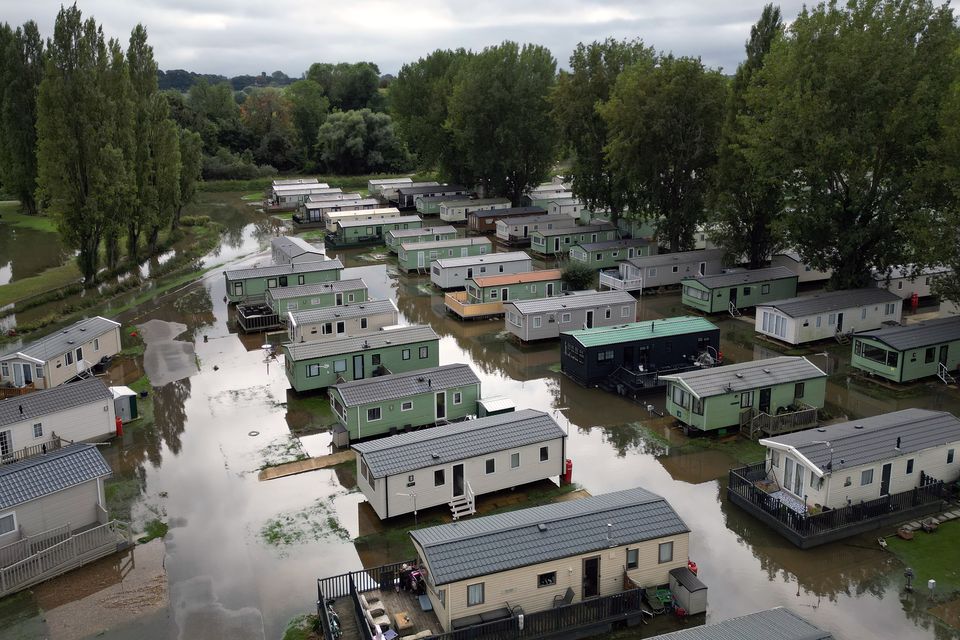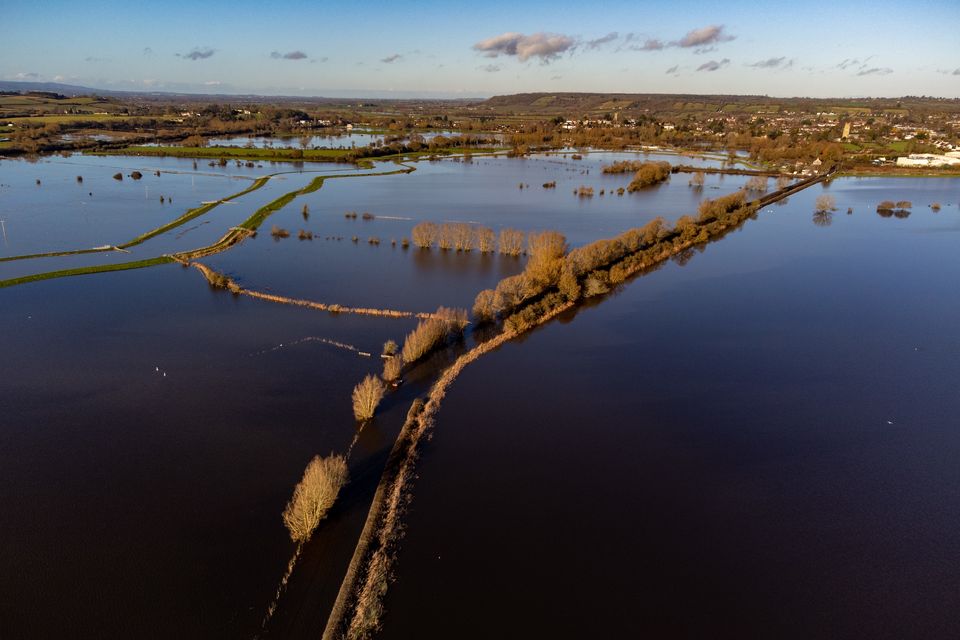About one in five homes and businesses in England are in areas at risk of river, sea and flash flooding, analysis from the Environment Agency has warned.
A major new update from the agency, which comes after widespread disruption and floods from storms Bert and Darragh, shows 6.3 million properties in England are in areas at risk of flooding from rivers, the sea or surface flooding, or a combination of different sources.
The figures are up from 5.5 million in the last assessment in 2018, as the update draws on much more advanced data and modelling, including new mapping down to a 2m scale, as well as factoring in recent changes which have taken place such as new building and a worsening climate.
The analysis accounts for the impacts of climate change for the first time and warns it will lead to an increase in the number of properties in areas at risk from rivers and the sea or surface water to about eight million by the middle of the century – or around one in four homes and businesses.
The report looks at flooding for properties ranging from houses to holiday homes, caravans and businesses (Joe Giddens/PA)
About 4.6 million of the properties currently at risk face surface water floods, caused by heavy rainfall overwhelming drainage systems and causing run-off or flash flooding.
The Environment Agency (EA) said the figure was a 43% increase on the previous assessment, as a result of improvements in data, modelling and use of technology to fill in gaps in some parts of the country and give a much more accurate assessment of surface water flood risk.
The assessment also found about 2.4 million properties, from houses and flats to caravans, care homes and businesses, are in areas at risk of flooding from rivers and the sea in England, slightly lower than the 2.6 million in the last assessment.
But the EA said there was an 88% increase in the number of properties at the highest levels of risk, with 367,900 homes and businesses now in areas with a greater than one in 30 chance of flooding in any given year, due to a number of factors including improved data and modelling.
The report being published on Tuesday also highlights that more than half (52%) of properties at a high or medium risk from rivers and the sea are in the East Midlands, Yorkshire and the Humber and South East.
Meanwhile, 319,800 properties in areas at high risk from surface water flooding are in London, the report warns.
It also reveals that more than 163,000 properties at a high risk of flooding from rivers and the sea would likely see floodwater of 30cm (1ft) or higher – deep enough to move a car – and more than 184,000 could see surface water flooding of 30cm or more.
Nearly two fifths of railways (37%) and roads (38%) are in areas at some risk of flooding, along with more than a fifth of schools and other educational buildings, and more than a quarter of hospitals and medical facilities, while 59% of the highest quality agricultural land is also at risk.
The assessment also reveals the risk of flooding to farmland (Ben Birchall/PA)
The assessment is used to inform flood prevention measures ranging from planning advice and the siting and type of flood defences to interventions such as household flood gates and the flood warning system for the public.
Another assessment on coastal erosion, the first to be published since 2017, warns that 3,500 properties are in areas at risk of being lost to the sea up to 2055, a figure which rises to 32,800 if shoreline management plans for threatened areas are not delivered.
And even if such plans are put into place, the numbers of properties at risk of erosion up to the end of the century rises to 19,700 as a result of climate change, which is driving up sea levels and making coastal storms more intense.
Hotspots for coastal erosion include the East Riding of Yorkshire, north Norfolk and Cornwall.
Julie Foley, director of flood risk strategy at the Environment Agency, said: “We have spent the last few years transforming our understanding of flood and coastal erosion risk in England, drawing on the best available data from the Environment Agency and local authorities, as well as improved modelling and technological advances.
“Our updated assessment shows there are 6.3 million properties in England in areas at risk of flooding from rivers, the sea or surface water.
“When we account for the latest climate projections, one in four properties could be in areas at risk of flooding by the middle of the century.
“Providing the nation with the best available information on flood and coastal erosion risk is vital to ensuring that policy makers, practitioners and communities are ready to adapt to flooding and coastal change.”
In response to the analysis, Friends of the Earth campaigner, Alison Dilworth, said: “This report is yet another stark warning about the growing threat the climate crisis poses to people, homes and communities across the country – with the elderly, disabled and those living in vulnerable areas particularly in danger.”
She warned that Government plans for dealing with increasingly extreme weather were “completely inadequate” and called on Labour to fix the failings of the previous government by strengthening the programme to help the country adapt to climate change.
Floods minister Emma Hardy said the report showed “too many communities” were exposed to the dangers of flooding.
“Combined with the fact that this Government inherited flood defences in their worst condition on record, it is vital we invest in protecting our communities,” she said, pointing to £2.4 billion committed over the next two years to repair and build flood defences.

